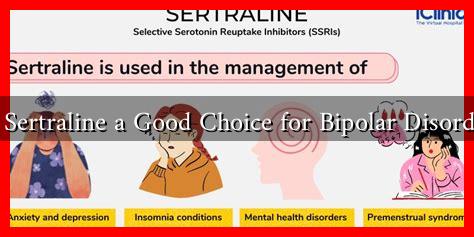-
Table of Contents
Is Sertraline a Good Choice for Bipolar Disorder?
Bipolar disorder is a complex mental health condition characterized by extreme mood swings, including emotional highs (mania or hypomania) and lows (depression). Treatment often involves a combination of medications and therapy. One medication that has gained attention in recent years is Sertraline, a selective serotonin reuptake inhibitor (SSRI) commonly prescribed for depression and anxiety. But is Sertraline a suitable choice for individuals with bipolar disorder? This article explores the efficacy, risks, and considerations surrounding the use of Sertraline in treating bipolar disorder.
Understanding Bipolar Disorder
Bipolar disorder affects approximately 2.8% of the U.S. adult population, according to the National Institute of Mental Health (NIMH). The disorder is categorized into several types, including:
- Bipolar I Disorder: Characterized by manic episodes lasting at least seven days or by manic symptoms that are so severe that immediate hospital care is needed.
- Bipolar II Disorder: Defined by a pattern of depressive episodes and hypomanic episodes, but not the full-blown manic episodes typical of Bipolar I.
- Cyclothymic Disorder: A milder form of bipolar disorder involving periods of hypomanic symptoms and periods of depressive symptoms lasting for at least two years.
Sertraline: An Overview
Sertraline is primarily used to treat major depressive disorder, obsessive-compulsive disorder, panic disorder, and social anxiety disorder. It works by increasing the levels of serotonin in the brain, which can help improve mood and emotional stability. However, its use in bipolar disorder is more controversial.
Potential Benefits of Sertraline for Bipolar Disorder
Some studies suggest that SSRIs like Sertraline can be beneficial for treating depressive episodes in individuals with bipolar disorder, particularly when used in conjunction with mood stabilizers. Here are some potential benefits:
- Improved Mood: Sertraline may help alleviate depressive symptoms, which can be particularly debilitating for those with bipolar disorder.
- Reduced Anxiety: Many individuals with bipolar disorder also experience anxiety, and Sertraline can help manage these symptoms.
- Well-Tolerated: Generally, SSRIs are well-tolerated compared to other classes of antidepressants.
Risks and Considerations
Despite its potential benefits, there are significant risks associated with using Sertraline in individuals with bipolar disorder:
- Risk of Manic Episodes: SSRIs can trigger manic or hypomanic episodes in some individuals with bipolar disorder, especially if not used alongside a mood stabilizer.
- Mixed Episodes: Some patients may experience mixed episodes, where symptoms of both mania and depression occur simultaneously, leading to increased risk of self-harm or suicidal thoughts.
- Long-Term Effects: The long-term effects of using SSRIs in bipolar disorder are still not fully understood, necessitating careful monitoring by healthcare providers.
Case Studies and Research Findings
Research on the use of Sertraline in bipolar disorder has produced mixed results. A study published in the Journal of Clinical Psychiatry found that while SSRIs can be effective in treating depressive episodes, they should be used cautiously and always in combination with mood stabilizers. Another study indicated that patients who were treated with SSRIs without mood stabilizers had a higher incidence of manic episodes.
Conclusion: Weighing the Options
In conclusion, while Sertraline may offer some benefits for individuals with bipolar disorder, particularly in managing depressive symptoms, it is not without risks. The potential for triggering manic episodes and the need for careful monitoring make it essential for patients to work closely with their healthcare providers. Ultimately, the decision to use Sertraline should be made on a case-by-case basis, considering the individual’s specific symptoms, history, and treatment goals.
For those considering Sertraline as part of their treatment plan, it is crucial to have an open dialogue with a mental health professional to weigh the benefits against the risks. As with any medication, informed decision-making is key to effective management of bipolar disorder.


